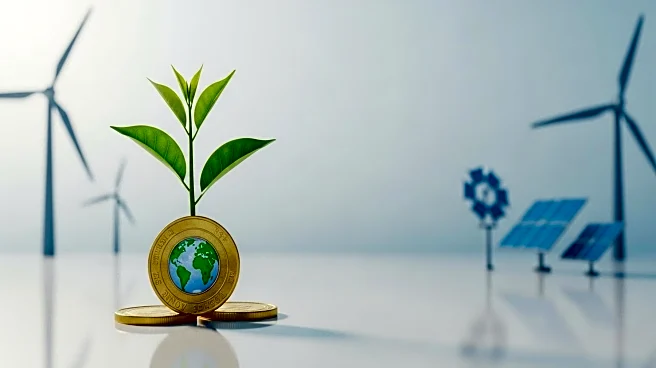What's Happening?
The annual U.N. climate conference, COP29, has commenced in Baku, Azerbaijan, with a primary focus on financing climate change efforts globally. Delegates from around the world are discussing the financial commitments necessary to support developing countries in their climate adaptation efforts and compensate them for damages caused by climate change. Wealthier nations, responsible for the majority of greenhouse gas emissions, are being urged to contribute significantly to these efforts. The conference aims to address the disparity in climate impact between richer and poorer nations, with discussions centered on the allocation of funds and the role of private finance. The U.N. has set a target of $100 billion in international financing, but estimates suggest that up to $2.4 trillion will be needed by 2030 to meet climate goals.
Why It's Important?
The COP29 conference is crucial in determining the financial strategies that will enable global climate change mitigation and adaptation. Developing countries, which are disproportionately affected by climate change, require substantial financial support to build resilience and reduce emissions. The discussions at COP29 could lead to significant policy shifts and financial commitments from wealthier nations, impacting global economic and environmental strategies. The outcome of these talks will influence how nations collaborate to address climate change, potentially reshaping international relations and economic priorities. The conference also highlights the urgency of climate action, as preliminary data indicates that 2024 may be the warmest year on record.
What's Next?
As COP29 progresses, delegates will continue to negotiate financial commitments and strategies for climate adaptation. The conference faces challenges, including political disagreements and the need for consensus on the agenda. The outcome of these discussions will determine the level of support developing countries receive and the role of private finance in climate efforts. The decisions made at COP29 could set a precedent for future climate conferences and influence global climate policy. Stakeholders, including governments and environmental organizations, will be closely monitoring the commitments made and their implementation.
Beyond the Headlines
The COP29 conference underscores the ethical and economic dimensions of climate finance. The debate over which countries should contribute and how much highlights the complexities of global climate responsibility. The discussions may lead to long-term shifts in how nations perceive climate finance, moving from a charitable perspective to one of mutual self-interest. The conference also raises questions about the role of private finance and the need for innovative funding mechanisms to support climate goals.










